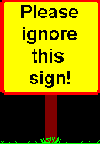

ED. 251 FIELD EXPERIENCE REQUIREMENTS

For Questions, Problems, or Progress Reports, E-Mail Dr. Osborne
ozpk@earthlink.net
Try to work at a pace of one good writing for each inquiry one SHARED INQUIRY meeting per week. Each Inquiry is seeking YOUR thoughts and opinions, based at least in part on the readings. There are no predetermined answers, which is why it is important for you to explain your views.
YOU are responsible for keeping up with inquiries and Shared Inquiry postings (one good chunk per week for each). YOUR WORK IS TO BE KEPT IN A PORTFOLIO THAT WILL BE EVALUATED USING THE FOLLOWING CRITERIA:
1. Reprints of selected web sites and articles 2. Reprints are highlighted and notated, reflecting thoughtful reading (both critical and creative thought). 3. A written summary of what you have learned and concluded (for each inquiry).
Inquiry 1 sub question: How will the Teacher Test assess my literacy? What do I see as my STRENGTHS and LIMITATIONS in terms of literacy? Consider "literacy" in a broad, deep sense--reading the lines, reading between the lines, and reading beyond the lines. [This goes beyond what the test measures.]
A) Take a close look at and survey the Test Objectives for Part 1: Communication and Literacy Skills.
B) Then study the relevant sections of the SUBJECT MATTER sections of the TESTS. These two sections are from the Massachusetts Department of Education. When the next Mass. Teacher Tests occur, consider taking them as a diagnostic tool.
You can take a practice version of the Teacher Test at the WriteNet site.
C) Read my brief essay, HIJACKING ED REFORM IN MASSACHUSETTS.
D) ACTIVE LEARNING
A substantive part of becoming a teacher in the new Millenium (post-2000), is to have an impact on students through means substantiated in research. This part of your first inquiry moves into a deeper part of what becoming a teacher involves. MEANINGFUL, ENGAGED LEARNING and ACTIVE AND COOPERATIVE LEARNING are two sites from which to consider several things: how you want to teach differently from how you were taught; how you want this course to engage you; what seems to determine what is meaningful for you; whether what the second site says about college learning is true in your view.
E) To complete this stage of Inquiry 1--that you will return to several times during this course--write a draft describing your "findings". These findings should include your views on the political backgrounds and "class war" implications [class, race and gender] of the Teacher Test/Ed Reform. Reactions you think would be interesting to others should be posted on the Discussion Board.
Now for something more concrete:
2. How might you choose to begin a course when you teach? Consider ICEBREAKERS that human resources people use, or others recommended by teachers for the start of school. Do you see drawbacks, as well as advantages, in using this type activity? What are some possible solutions? How do you propose "breaking the ice" of the first day? Write about this as part of Inquiry 1.
One of the ways to seek answers to this question is to look closely at some early teachers. As you read the sites in this inquiry, think about similarities and differences between them and yourself. The two major teachers to consider are
and SOCRATES
SOCRATES' TEACHING
PLATO'S CAVE is the best known of Socrates teaching. Read the allegory and Simone Weil's interpretation. Write about what the allegory means to you. Make a chart of the methods these master teachers used. How do they compare with methods through which you've been taught? How do they compare to teachers you see in your field experience, and to the kinds of teaching you'd like to do? Write impressions in your PORTFOLIO.
Read closely, and either copy and mark or take notes from, TEACHING THROUGH THE CENTURIES, a synopsis of changes in teaching, with a particular and perhaps surprising emphasis on how religion and education have intertwined. Be sure you read and perhaps reprint the links included in this synopsis.

First consider personal strengths and goals:
Do you have a "sense of mission" or "passion"? Do the "Personal Mission Builder" survey at the following site: FRANKLIN COVEY PERSONAL MISSION STATEMENT BULIDER
Then spend a good hour surfing and surveying sites for ARTICULATING YOUR PHILOSOPHY OF EDUCATION. Based on what makes the most sense to you, try writing a one-paragraph PERSONAL PHILOSOPHY of EDUCATION Statement that incorporates some of your PERSONAL MISSION profile with what you see as the highest purposes of learning and schooling. This is the sort of statement you might be required to write on an application to teach in a school system, or one you might be asked to articulate in an interview. Put this in your Portfolio along with other Inquiry 1 material.
There's a lot of stress going around from the "Teacher Quality Emergency" (I prefer EMERGE-and-SEE), and we could all benefit from humor...like the "You know you're a teacher if..." items at STRESS REDUCTION [THIS SITE CHANGES WEEKLY, SO VISIT IT OFTEN!]Consider reprinting these. Then take them with you to your field experience. It can provide comic relief for teachers; they may ask for copies for the faculty room wall. It will also give you a "sideways" point of entrance to discussing all kinds of things about teaching with them.
Spend at least one hour looking throug all the resources at the site for new and aspiring teachers, NEW-TEACHER.COM.
What will be your stance? Begin by taking the Classroom Management Profile Survey.
Then read THE METAMORPHOSIS OF CLASSROOM MANAGEMENT. Be sure to click on and study the "Discipline Profiles" chart in paragraph 4. Also spend at least one hour doing focused surfing through the links in the DISCIPLINE & CLASSROOM MANAGEMENT. Give some thought to what has shaped much of the behavior of discipline-problem students.
Do you realize that classroom management and discipline are far more complex than "Don't Smile 'Til Christmas" bromides?
From this investigation, write out in a brief, 100-words-or-less statement what your stance is on discipline, at this point in time. Follow that statement with a draft of up to five routines and rules for your prospective classes. Be sure this work is in your PORTFOLIO FILE.
Summarize your learning and impressions in a Letter to Yourself, and put this letter in your Portfolio File. A letter to yourself is written as if you are a close friend writing to and advising you.
Select at least three sites from HOT TOPICS to begin this inquiry.
Reprint, read, highlight and annotate the Background Papers you select from this site. Part of becoming a teacher is to become knowledgeable and articulate about the issues facing our profession. Time spent reading these papers will help you gain this background.
In your Portfolio, write an imaginary dialogue where you imagine you are discussing one of these HOT TOPICS with other new and aspiring teachers. Write it as a play script of several pages, and try to imagine several viewpoints.
Can good teachers make a difference in the face of overwhelming socio-economic disadvantages? You wouldn't be alone if you think not, but look for good news in at least three sites from TOLERANCE IN-SITES
Next, take some of the "Implicit Attitude Tests". Be careful not to overreact to this "test." To the extent your experiences have been with white, younger people, and you came from a family with "traditional" man/woman roles--you can expect your "implicit" attitudes to favor these groups over black, older, and non-traditional roles. This is not bad. But awareness of our implicit attitudes allows us to compensate, and thus overcome bias.
Third, read articles in this special issue of TEACHER TALK. Then, as a final step spend at least two hours of a reflecting on questions such as What is Racism? How do people develop it? What are some teachers doing to combat it. How does it figure into your curriculum? What are possible "blind spots" you see in yourself (particulary after doing this inquiry)? Write your answers and reflections in your portfolio.
Spend productive time surfing sites on MULTI-SITE SITES, and printing and annotating whatever looks most useful to include in your Portfolio.
"Choice" or "Focus" schools have become increasingly widespread. Explore at least 4 types from FOCUS SCHOOLS: A GENRE TO CONSIDER. What so you see as advantages/disadvantages to these alternatives to standard schools?
Then investigate sites on the wider issues of EDUCATIONAL REFORM, including growing Charter School movement backed by the Board of Education , the Governor, the U.S. President, and Congress--it is worth your while to become familiar with what may well be a future shape of schooling.
Each of the following sites has links you need to use in answering this basic question. COGNITIVE CONSTRUCTIVIST THEORY and BEHAVIORAL THEORIES give a sufficient overview for you to sense why there is an emerging movement toward the constructivist movement in schools and among progressive-minded teachers. THE COGNITIVE PARADIGM is a long paper developing this idea of a major change taking place now. Considering what you have learned in this inquiry, what kinds of things would you want to characterize your teaching. Write about this in a brief essay for this Inquiry in your Portfolio.


